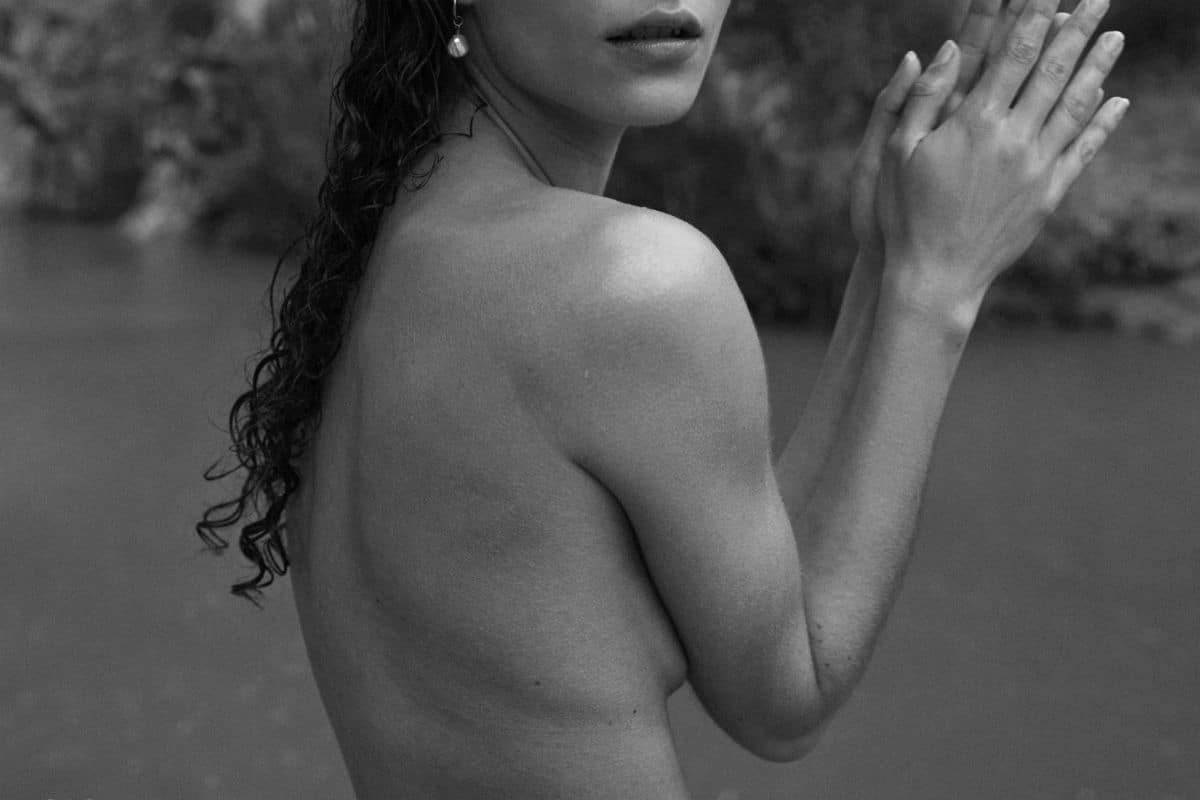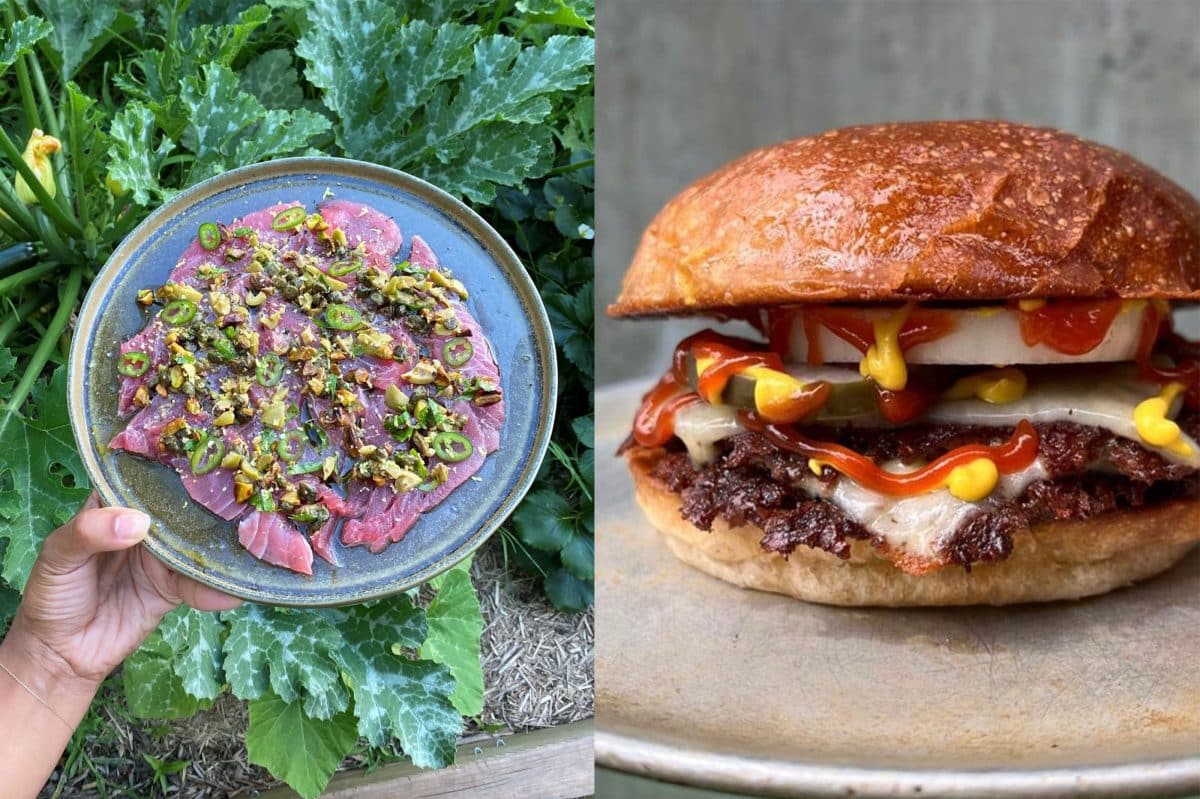
October is Breast Cancer Awareness Month, a time where we should all take the time to learn more about this disease.
53 people a day are diagnosed with breast cancer. An estimated 19,974 people in 2020 will receive a diagnosis and incidents of this widespread disease continue to rise.
We need to use this time to spread awareness, check in with our friends and family and make sure that we're looking after our own health. Education and knowledge is power after all.
In light of Breast Cancer Awareness Month, we connected with Breast Cancer Trials (AUNZ’s largest oncology research organisation) and medical oncologist Dr Nick Zdenkowski. Dr Nick answered our questions on breast cancer myth and what he wish more people knew about this disease.
What are some of the biggest myths you’ve heard about Breast Cancer?
There are many unfortunately. There is a lot of false information on the internet which people will search and then believe. Every week there seems to be a new myth, whether that is related to something in our diet, deodorants, underwire bras and so forth. Some of them are more dangerous though, for example, people assuming that breast cancer is only genetic and hereditary. This sort of information can mean people are less conscious of their breast health. We recommend that people go to reputable, research-based websites for their information, for example, the Breast Cancer Trials website.
What about things like underwire or deodorant? Is there a link here?
Every so often a myth will gain traction on the internet, like the supposed link between breast cancer and underwire bras, but there is no credible evidence to back it up. A 2005 population-based case-control study of around 1,500 women diagnosed with two of the most common histological types of breast cancer, invasive ductal carcinoma cases (IDC) and invasive lobular carcinoma (ILC) and a control group of women, found no aspect of bra wearing, including bra cup size, average number of hours/day worn, wearing a bra with an underwire or age when first began regularly wearing a bra, was associated with risks of any of the most common types of breast cancer.
The myth about a link between wearing an underwire bra and breast cancer comes from concern about bras impeding lymphatic drainage, interfering with toxin removal. Another theory without any factual basis is that bras cause cancer by increasing the surface temperature of the breast. To be clear, there are NO credible scientific studies or any other evidence of any association between any aspect of wearing a bra and breast cancer risk.
Ditto, with deodorants, There is no evidence that deodorants or antiperspirants cause breast cancer. This myth was perpetuated by several poor-quality studies. These studies proposed a theoretical link between deodorants and antiperspirants containing chemicals such as parabens and aluminium compounds that are applied close to where breast cancer can develop. However, a high-quality systematic review of all available studies showed there is no reliable evidence to suggest that the use of deodorants or antiperspirants increases the risk of breast cancer.
What role does age play? Are young women still at risk?
Age does play a role. About 75% of breast cancers occur in women over the age of 50. However, about a quarter of women with breast cancer might be pre-menopausal or under the age of 50. In breast cancer literature, very young women are often considered under the age of 35 and that's less common, however, it does still happen. Around 800 young women will be diagnosed with breast cancer each year in Australia. Although it is a smaller percentage, a diagnosis at a young age can have different implications than if you receive a diagnosis at a later stage in life. Younger women are typically diagnosed with more aggressive breast cancers and are at a higher risk of the disease spreading to other parts of the body. Therefore we encourage younger women to also be breast aware.
What about a family history of cancer or carrying the BRCA gene? What does this do to your odds of cancer?
It’s important to be aware of your family history with breast cancer, as a person’s risk of being diagnosed with breast cancer increases if they have a close relative who has had breast cancer. It’s estimated that 4% of Australian women have an increased risk of breast cancer due to family history, and only 1% are at high risk due to a strong family history. Approximately 5-10% of breast cancers are due to a strong family history of genetic mutation such as BRCA1 or BRCA2. Some women with strong family histories receive genetic testing to see if they have one of these mutations. People diagnosed with the BRCA gene mutation have an approximate 70% chance of developing breast cancer over their lifetime and one in 400 women will have the BRCA1 gene mutation. Jewish women of eastern European ancestry (Ashkenazi) are more likely to carry a BRCA1and BRCA2 gene mutation, estimated to be present in about 1 in 40 women. This is 20 times more common than in the general population.
What are the signs we should look for? Is breast cancer always a lump?
Sometimes lumps can be hard to identify (and in some cases breast cancer does not cause a lump at all) and they are not the only symptom of breast cancer. So it is important to look out for other signs as well. These could be pain or tenderness in the armpit or breast, changes in the breast size or shape, changes to the nipple, clear or bloody discharge from the nipple and changes to the skin and puckering of the skin on the breast.
When is the right time to start get breast cancer checks?
The earlier breast cancer is found, the better the chance of survival. Screening mammography can detect breast cancer at its earliest state, before it can be felt.
BreastScreen Australia recommends women aged 50-74 without breast cancer symptoms should have a screening mammograms every two years. This is the targeted age group as more than 75% of breast cancers occur in women aged over 50. Women aged 40-49 and 75 and over are eligible to receive free mammograms but do not receive an invitation to attend. If you have a strong family history of breast cancer, consider genetic testing for the BRCA gene mutation and talk to your doctor about getting into a screening program.
What is the one thing that you wish more people knew about Breast Cancer?
That there is a wide array of amazing breast cancer trials available and that if people do get a breast cancer diagnosis that they should talk to their doctor about any suitable trials. On a trial, they will receive the best possible care as well as well as helping with the advancement of treatments. People can visit www.breastcancertrials.org.au to find out about open trials in their area.



